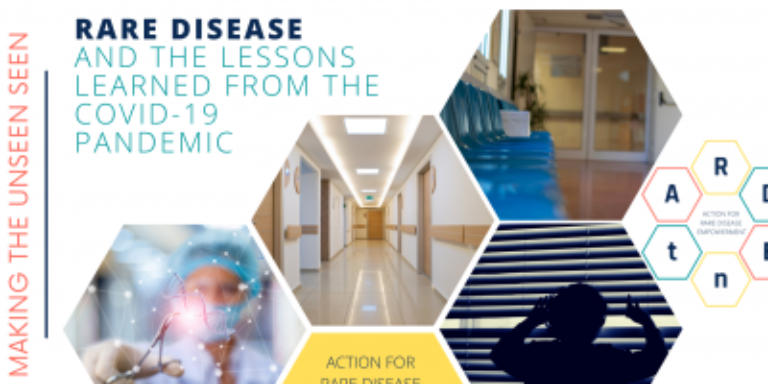
Since the start of BDB, we have received several requests to be part of research initiatives. Our reputation, network, grass roots approach and ability to involve people with lived experience is a valuable resource to researchers. The contributions we make are based on the collective knowledge gained through the BDB network, ASUK and our own lived experience.
The CONCORD Study (CoOrdiNated Care Of Rare Diseases) (1st June 2018 – 30th November 2020) looked at how care services are coordinated for people with rare conditions in the UK. There was a large survey and workshops to gather feedback from patients, families/carers and healthcare professionals. Kerry, on behalf of ASUK & BDB, was a co-applicant in the study and co-chaired the Patient and Public Involvement Advisory Group. Further information about the study can be found in an end of study webinar which is available on the Genetic Alliance UK website along with links to publications https://geneticalliance.org.uk/gauk-news/news/concord-end-of-study-webinar-coordinated-care-of-rare-diseases/
ARDEnt (Action for Rare Disease Empowerment) brought together a group of patient advocates to highlight the impact of the Covid-19 pandemic on people affected by rare conditions. The project was led by Cambridge Rare Disease Network, Medics 4 Rare Diseases and Rare Revolution. Kerry, on behalf of ASUK & BDB, was asked to join the group who collectively focussed on the impact of the pandemic on 3 key areas (linked to the Rare Diseases Framework). Priority 1: helping patients get a final diagnosis faster, Priority 2: coordination of care: Priority 3: Improved access to specialist care, treatment and drugs. The final report (pictured below) has been published and can be found www.camraredisease.org/ardent/.

A Public Dialogue on the Implications of Whole Genome Sequencing for Newborn Sequencing (September 2020 – March 2021). Genomics England and the UK National Screening Committee worked in partnership to carry out this public dialogue with funding and support from Sciencewise. Kerry, on behalf of ASUK & BDB, was asked to be a member of the oversight committee and our role was to oversee the process and materials for the project and to ensure diverse perspectives were gathered. The aim of the project was to understand these diverse perspectives and use this to inform future policies and decisions that better reflect societal views, hopes, concerns and aspirations in terms of newborn screening. The findings highlighted public support for the use of whole genome sequencing in newborn screening, providing that the right safeguards and resources are in place.
The Newborn Genomes Programme (December 2021 – November 2024). Following the positive findings from the public dialogue, the Newborn Genomes Programme was launched. This will be a co-designed and ethically approved research pilot that will be embedded into the NHS to explore the benefits, challenges and practicalities of offering whole genome sequencing to newborns. The plan is to sequence between 100,000 – 200,000 babies over several years to accelerate diagnosis and access to treatments for rare genetic conditions. Kerry, on behalf of ASUK & BDB, was invited to join the Newborns Recruitment Working Group. The aim of the group is to provide diverse perspectives from people with lived and clinical experience to shape the questions that need to be asked and to give suggestions about how to engage with different audiences as the team design, test and carry out the newborn recruitment process.
Newborn Genomes Programme | Genomics England
EXPRESS (October 2019 – September 2022) – Optimising EXome PREnatal Sequencing Services. The study is funded by the National Institute for Health Research (NIHR). Kerry, on behalf of ASUK & BDB, is a co-applicant in the study as a Patient and Public Involvement (PPI) representative and attends research team and PPI group meetings. The aim of the study is to evaluate the new fetal exome sequencing service. This test is offered to parents where a fetal anomaly is identified in pregnancies and is likely to have a genetic cause. The evaluation will determine whether the service is equitable, acceptable, ethical, robust and cost-effective.
RWGS Study (November 2021 – October 2023) – Rapid Whole Genome Sequencing for the diagnosis of critically ill children: The study is funded by the NIHR. Kerry, on behalf of ASUK & BDB, is a co-applicant in the study, attends research team meetings and chair’s the Patient and Public Involvement (PPI) Advisory Group meetings. The aim of the study is to ensure the new Genomic Medicine Service provides an equitable and effective parent and patient-centred service. Rapid Genome Sequencing is being used to diagnose genetic conditions, support with management of conditions, identify treatment options or guide options around palliative care while avoiding painful diagnostic interventions.
Improving outcomes for children and young people with diabetes from socio-economically deprived and/or ethnic minority communities (October 2021 – September 2026). The study is funded by the NIHR. Kerry, on behalf of ASUK & BDB, is a co-applicant in the study and receives funding to lead on PPI and attend research team meetings. Children and young people with diabetes from economically deprived and/or ethnic minority groups consistently do worse in terms of glucose control than those from more affluent, white backgrounds. This is likely due to a combination of socio-economic, cultural and access barriers to better engagement and involvement. The aim of this project is to develop culturally appropriate interventions (including community outreach, key workers, enhanced education, and behaviour change methods) that will be piloted and then rolled out in hospitals throughout the country.
CIOMS (April 2018 – September 2022). Kerry joined the Council for International Organisations of Medical Sciences (CIOMS) Working Group to contribute to a guidance document on ‘Patient Involvement in the Development, Regulation and Safe Use of Medicines’. The document will be published in September 2022 and the chapter on low-income countries is particularly relevant in terms of engagement and involvement with people from diverse and marginalised communities.

